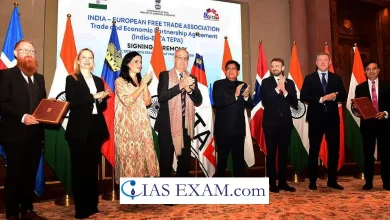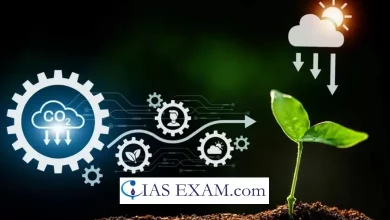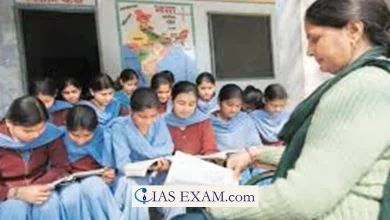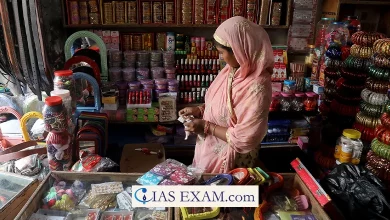Electoral Democracy Vs Constitutional Democracy
[GS Paper 2 – Indian Constitution, Polity and Governance]
The electoral aspects of democracy are now being used to undermine the non-electoral dimensions of democracy. This process can be called the battle between electoral democracy and constitutional democracy,
In present times, democracy does not normally die as a result of military or executive coups. Processes internal to the democratic system can severely weaken democracy itself, even causing its collapse.
Differently labelled as right-wing populism, majoritarianism or illiberal democracy, the core of this politics consists of the following proposition: If we can get elections to legitimate our platform on behalf of a racial/ethnic/religious majority, we can use electoral power to attack – via legislation — the idea of minority rights and undermine – also via legislation — standard democratic freedoms such as the freedom of expression, freedom of association and freedom of religious or cultural practice. A freely conducted vote can thus be used to cripple the other freedoms that modern democracies also value.
Indian Democracy
India is a vibrant democracy with people electing their representatives at several levels beginning from local bodies & panchayats to the Parliament. India has Parliamentary system of governance which is based on Britain’s Westminster model of constitutional democracy.
Present Issues with Indian Democracy
India’s political culture has been vitiated by unprecedented waves of populism, jingoism, sectarianism and confrontational politics.
Money Power & Freebies
- Expenditure: There are three drivers of expenditure in elections viz. legitimate electioneering cost, party running cost, and TV air time cost.
However, the accounted legitimate expenditure is a mere percentage of actual spending by the candidate and their corresponding political parties. According to the report of the National Commission to Review the Working of the Constitution (NCRWC), high cost of elections creates a high degree of compulsion for corruption in the public arena.
- Vote-buying – The rise of illegitimate expenditure on vote-buying has become a matter of great concern as it is making only the rich more qualified to become an MP (Member of Parliament) or an MLA (Member of the Legislative Assembly) over a well-qualified public-spirited person.
As can be seen, out of 533 candidates elected to the 17th Lok Sabha (2019-present), 475 Parliamentarians (accounting for 88%) are ‘crorepatis’. This reflects the paradoxical situation of poor India with rich Parliamentarians raising concerns about the growing role of money power in politics.
- Freebies – Freebie is something provided or given free of charge, ranging from rice at cheapest rates to laptops & bicycles. These promises may be targeted at particular groups of electorate like BPL families, weaker sections of the society, women, handicapped etc. Although, people have many-a-times rejected it, but still, political parties continue to compete with each other by offering such entitlements.
- Paid News – Paid news is any news or analysis appearing in any media (Print and Electronic) for a price in cash or kind. An issue like Paid News disrupts the level playing field and circumvents the election expenditure limits. This creates a hurdle for the Election Commission of India (ECI) to conduct the smooth run-off elections in a free, fair and transparent manner.
- Issuance of Secret Bonds – Electoral bonds are the bearer bonds that were launched in 2017 in order to cleanse the system of political funding in the country.
However, its anonymous feature in which neither the donor nor the political party is obligated to reveal whom the donation comes from defeats the fundamental principle of transparency in political finance (as the voters are unaware of the source of funds that are spent by the political parties in the election process).
- Criminalisation of Politics – It refers to a situation in which the anti-social elements enter the electoral process by contesting elections, getting elected to the legislature, and consequently occupying public offices. This happens due to the existing strong nexus between the criminals and some politicians abusing the loopholes in the present system.
- Flaws in the Criminal Justice System – In India, an accused is presumed to be innocent unless pronounced guilty by the Courts. The rate of conviction for politicians is abysmally low, with just 6% in criminal cases. This implies that a large number of accused politicians with criminal background actually go unpunished from a Court of law, and are not disqualified from contesting elections further.
- Caste-based Politics – Caste politics in the last three decades have been marked by the desire for power on the caste-lines rather than a substantial agenda for social reform of the downtrodden. However, election campaigns along communal or caste lines are banned under the election rules.
Way Forward
The constitutional functionaries, who have taken the pledge to uphold the constitutional principles, are charged with the responsibility to ensure that the existing political framework does not get tainted with the evil of corruption.





.png)



